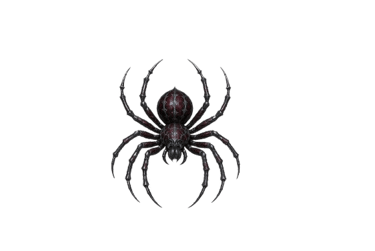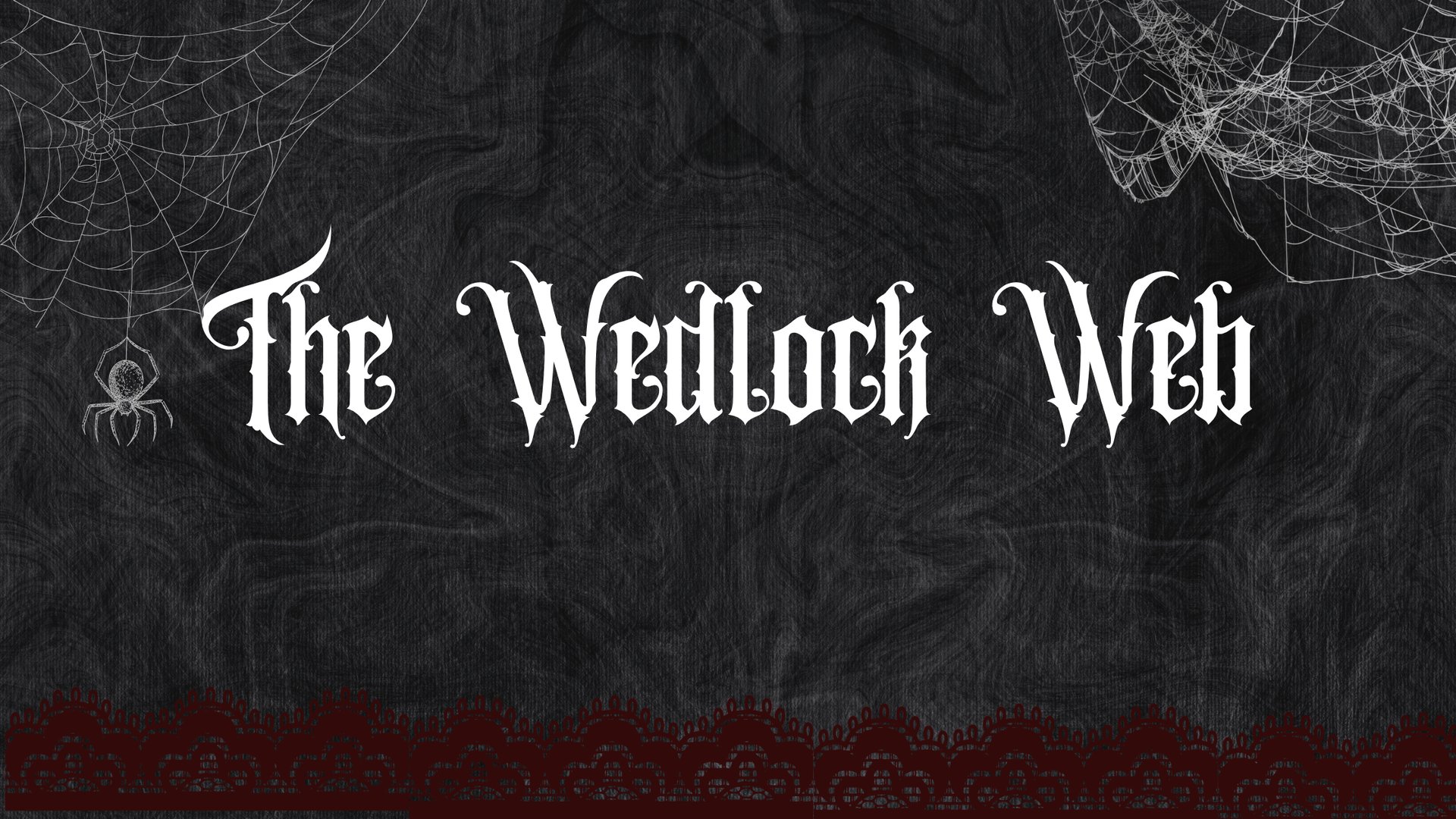



Long ago, catching a husband was a skilled art. Women were instructed and highly pressured to get married by 20 years old, if not sooner. In the early 18th century, some believed that if a young lady wasn't married by 30, she was destined to become a spinster.
But being a spinster wasn't as bad as everyone made it out to be.

RUBY KILLIGAN
Ruby Killigan, a striking 18-year-old woman, stands as a quiet yet haunting figure amidst the darkened shadows of the DuPont gunpowder mills in Brandywine, Delaware. With her porcelain skin, dark burgundy hair, and piercing, emerald eyes, Ruby’s appearance reflects a haunting beauty that mirrors the mysterious world she inhabits.
Living within the industrial heart of the DuPont estate in the 1880s, Ruby has learned to navigate the delicate web of power and secrecy that entangles the families and workers of the mill. Despite the harshness of her surroundings, she is no stranger to both tragedy and hidden strength, standing apart from those around her with an uncanny ability to see things others cannot.
Her world is one of shadows and whispers, where love and betrayal dance in the delicate lace of 1880s society, and Ruby herself is caught between the pull of duty and the allure of her own dark, unknowable desires.
EDWARD MOORGATE
Tonight, the DuPont house was restless with preparations of revenge, whispers of alliances, of a marriage meant to bind. Edward had no interest in vows or veils. Binding was a fool’s game. The true power was in unbinding, in tearing loose the seams of the world. Edward Moorgate sits silently with his raven-black hair streaked with silver strands resembling spiderwebs. His eyes are dark, predatory, and haunting, with a faint crimson glint. His expression is sinister and calculating, exuding intelligence and menace.
He held the ruined lace thread to the fire. It curled and blackened, vanishing in smoke. Edward’s eyes glinted with the reflection of flame, and in them burned a promise: if others sought to weave, he would unravel.
Raised within DuPont walls, Edward never knew the freedom Ruby had to wander. His world was corridors, studies, and stern rules.
1880s DuPont Mansions, The Gunpowder Mill
Hidden in the wooded valleys along the Brandywine River in Delaware, the DuPont gunpowder mills were at once a marvel of industrial ingenuity and a place of constant danger. Built in the early 1800s by the DuPont family, the mills grew into one of America’s most important suppliers of black powder, feeding the nation’s armies, hunters, miners, and builders.
The setting itself was striking: rows of low stone and timber buildings scattered along the riverbanks, their stout walls built thick to contain inevitable blasts. Some had one side open to the water so that, if an explosion occurred, the force would vent outward rather than inward, sparing the workers within. Narrow canals diverted rushing water from the Brandywine to power the great waterwheels and grinding stones that transformed sulfur, charcoal, and saltpeter into volatile powder.
Daily life in the mills was a mix of routine precision and whispered dread. Workers wore cotton or wool clothing to prevent sparks; even a stray nail in a boot could mean catastrophe. The air carried a bitter tang with a sharp intake of sulfur on the nose, charcoal smoke on the tongue, a metallic weight of saltpeter clinging to the lungs. Horses and mules trudged along paths pulling wagons of raw materials, while barges and flatboats waited downstream to haul the finished powder to market.
The rhythm of production was often broken by silence and sudden tragedy. Explosions were so common that the families of millhands kept their windows open, fearing shattered glass more than cold air. Bells would toll from the hilltop to signal another accident, and the community would hold its breath until names were read aloud.
Yet despite the danger, the mills symbolized power, wealth, and progress. For the DuPonts, they were the foundation of an empire; for the laborers, they were both livelihood and potential grave. The stark beauty of the place was undeniable: moss-covered stone walls beside a rushing river, wheelhouses creaking in the spray, and smoke drifting upward through tall trees. By the late 19th century, as America surged into industry, the gunpowder works stood as both a relic of old-world craftsmanship and a grim reminder of the price of ambition.
The Setting
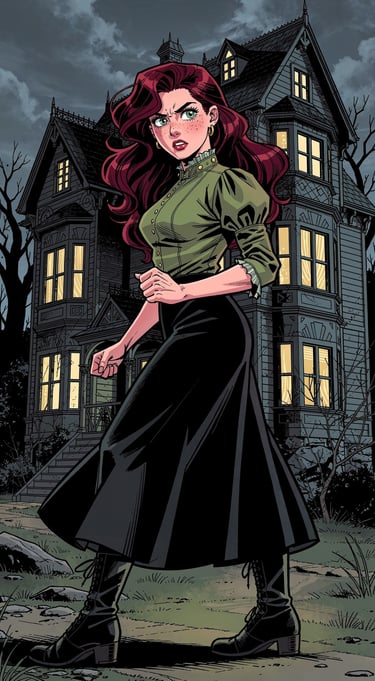

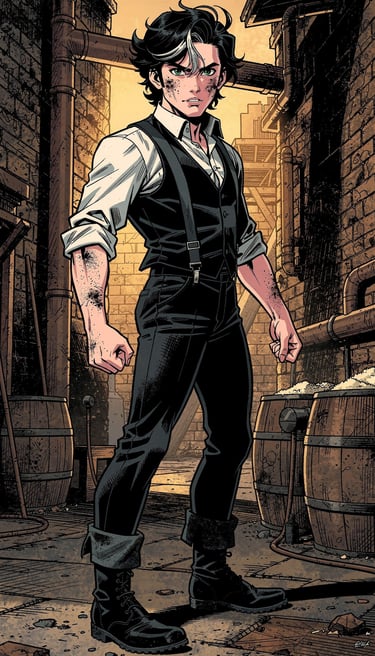


You didn’t come this far to stop now.
Victor Moorgate is a man who walks the uneasy line between classes—too refined to be fully embraced by the workers, yet never accepted among the aristocracy. Once a laborer in the gunpowder mills, he learned to blend into the ranks with soot-stained hands and a lowered gaze, though his sharp mind and cold demeanor set him apart. The explosion that claimed lives at the mill scarred him in ways no eye can see, hardening him into a figure driven more by resentment than redemption.
Tall and broad-shouldered, Victor carries himself with the quiet menace of a predator. He rarely raises his voice, but his presence alone unsettles a room. To the unsuspecting, he appears as just another mill worker—his plain clothing a disguise, his silence a shield. Yet those who look too long into his eyes sense something darker: a mind calculating, observant, and utterly ruthless when commanded.
Loyal to Joanna DuPont yet haunted by his own failures, Victor has become her most dangerous hound. He is the one sent to track what others cannot see, to root out secrets hiding in shadow, to hunt those who dare to slip through Joanna’s grasp. Though he serves her will, there is a growing storm within him—a bitterness born from never belonging, from always being the instrument rather than the master.
Victor Moorgate is more than a servant. He is a reminder that those who live in the margins—neither noble nor common—can become the sharpest weapons of all.
VICTOR MOORGATE
JOANNA DUPONT
Cold elegance and ambition define Joanna DuPont, the iron-willed heiress of a powerful dynasty. Cloaked in wealth and privilege, she carries herself with a regal poise that hides a ruthless hunger for control. Joanna’s charm is as dangerous as it is captivating—her words polished with grace, her gaze sharp as glass. Whispers say she guards forbidden knowledge passed down through her family, secrets woven into lace and shadow. To cross her is to step into a web spun centuries deep.
Joanna DuPont is the commanding presence at the heart of Winterthur’s great estate. Born into privilege and polished by power, she embodies the refinement of the DuPont dynasty while concealing an iron will beneath her silks and jewels. Her beauty is severe, her words chosen with precision, and her gaze alone is enough to unsettle even the most steadfast soul.
Obsessed with legacy and control, Joanna guards the family’s darkest heirlooms—most notably a tapestry stitched with prophecy, its threads rumored to shape the fates of those ensnared ithin it. To her, love is a distraction, mercy a flaw, and silence a tool to bend others to her designs.
Every gesture, every smile, every whispered command is deliberate. She moves through her world like a spider in her web—elegant, patient, and merciless when the time comes to strike. To know Joanna DuPont is to understand that power, once taken, is never freely given back.
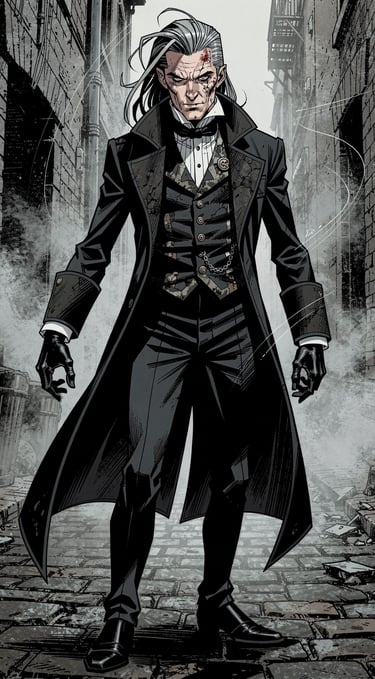

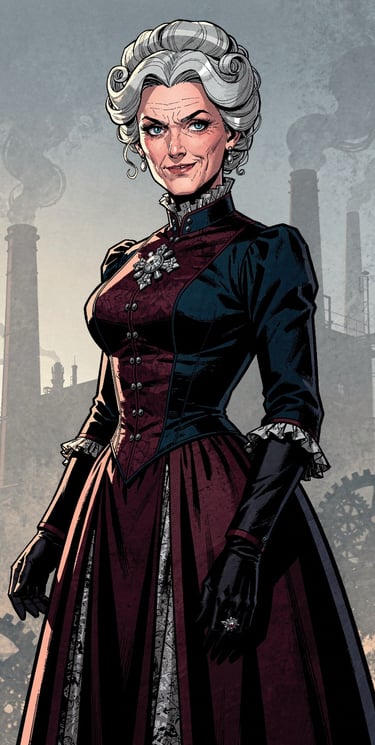


The Supporting Cast
Ruby’s Family
Margaret Killigan (Ruby’s Mother)
A woman of quiet strength, Margaret Killigan has endured hardship with dignity. Once full of laughter, her spirit dimmed under the weight of poverty and loss. She loves Ruby fiercely, though fear for her daughter’s future often drives her to silence. Her worn hands and tired eyes carry the story of sacrifice.
Frank Killigan (Ruby’s Father)
A proud Irishman whose work in the mills left his lungs weakened and his body scarred. Frank clings to the old country’s songs and superstitions, whispering tales of omens and spirits. Though beaten down by circumstance, he remains protective of Ruby, warning her that fate can be both a gift and a curse.
James Killigan
Frank’s brother, Uncle James, is both mentor and mischief-maker. A wanderer who never fully settled, he carries stories like coins in his pocket—ready to charm or unsettle depending on his mood. To Ruby, he represents both freedom and danger, urging her to listen to her instincts rather than the dictates of society.
